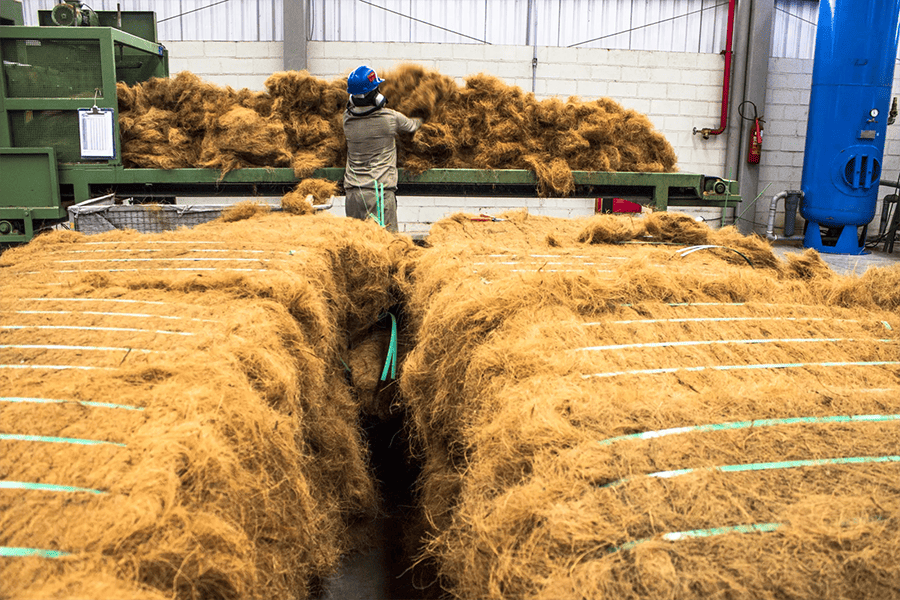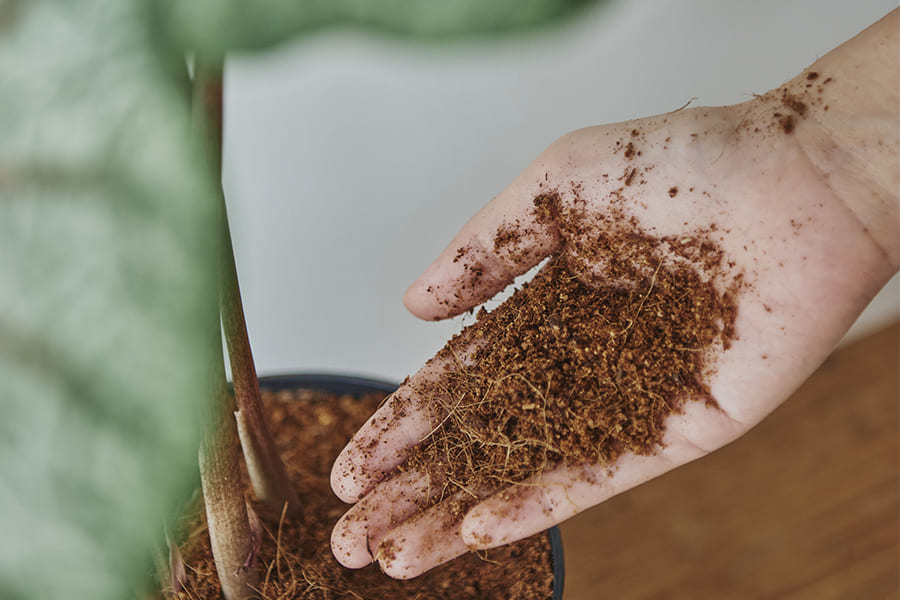BLOG POSTS & ARTICLES
Coco Coir vs. Peat Moss: Which Substrate Reigns Supreme in the World of Gardening?

Introduction to coco coir and peat moss
When it comes to gardening, the choice of substrate plays a crucial role in the success of your plants. Coco coir and peat moss are two popular options that offer unique benefits. Coco coir, also known as coco peat, is a natural byproduct of coconut husks chips, while peat moss is a decomposed plant material found in bogs. Both substrates have their advantages and disadvantages, and in this article, we will explore which one reigns supreme in the world of gardening.
Benefits of using coco coir as a substrate
Coco coir has gained popularity among gardeners for its numerous benefits. Firstly, coco coir is an excellent water retainer, holding moisture for longer periods compared to peat moss. This makes it ideal for plants that require constant hydration. Additionally, coco coir has a high cation exchange capacity, meaning it can retain and exchange essential nutrients with the plant roots efficiently.
Another advantage of coco coir is its sustainability. It is an organic and renewable resource, as it is made from the discarded husks of coconuts. Unlike peat moss, which takes centuries to form, coco coir is readily available and does not contribute to the depletion of natural resources. Furthermore, coco coir is resistant to fungal growth and pests, providing a clean and healthy environment for your plants.
Benefits of using peat moss as a substrate
While coco coir has its merits, peat moss also offers unique benefits in gardening. Peat moss is known for its exceptional water-holding capacity, making it an excellent choice for plants that require a well-drained but moist environment. Its ability to retain moisture helps prevent overwatering and root rot.
In addition to water retention, peat moss has a high acidity level, which is beneficial for acid-loving plants such as blueberries, azaleas, and rhododendrons. It also has a high porosity, allowing for good airflow and root development. Furthermore, peat moss is lightweight and easy to handle, making it a convenient choice for American gardeners of all levels of expertise.
Coco coir for hydroponics: advantages and disadvantages
Hydroponics, the method of growing plants without soil, has gained popularity in recent years. Coco coir has become a favored substrate for hydroponic systems due to its unique properties. One advantage of coco coir in hydroponics is its ability to hold water while still allowing for sufficient oxygenation of the roots. This promotes healthy plant growth and prevents root suffocation.
However, it is important to note that coco coir requires careful management in hydroponic systems. It has a high salt content, which can negatively impact plant health if not properly flushed and buffered. Additionally, coco coir may need supplementation with calcium and magnesium to provide the necessary nutrients for plant growth.
Coco coir vs. peat moss: a comparison of properties and performance
When comparing coco coir and peat moss, it is essential to consider their properties and performance in gardening. Coco coir has a neutral pH level, making it suitable for a wide range of plants. It is also more resistant to decomposition compared to peat moss, ensuring its longevity as a substrate.
On the other hand, peat moss has a lower pH level, making it ideal for acid-loving plants. Its decomposition rate is faster than coco coir, which means it needs to be replaced more frequently. Peat moss also has a higher water-holding capacity than coco coir, but it may become compacted over time, reducing its ability to provide proper drainage.
Coco coir as an organic gardening option
For gardeners looking for organic options, coco coir is an excellent choice. It is a natural and sustainable substrate that is free from harmful chemicals and pesticides. Unlike peat moss, which is often harvested from ecologically sensitive areas, coco coir is sourced from coconut husks that would otherwise be discarded.
In addition to being organic, coco coir can be reused multiple times, reducing waste and providing long-term value. It is also free from weed seeds and pathogens, ensuring a healthy and productive gardening experience.
Choosing the right substrate for your gardening needs
When deciding between coco coir and peat moss, it is crucial to consider your specific gardening needs. Coco coir is a versatile substrate that works well for a variety of plants, while peat moss is better suited for acid-loving species. Consider the water requirements, pH preferences, and nutritional needs of your plants before making a decision.
Additionally, consider the availability and cost of each substrate. Coco coir is becoming more widely available and can be purchased in bulk, making it a cost-effective option for larger gardening projects. Peat moss, although more accessible, may be more expensive in the long run due to the need for regular replacement.
Tips for using coco coir and peat moss effectively
To make the most of coco coir and peat moss, here are some tips for effective usage:
- Hydration: Coco coir should be soaked in water before use to expand and remove excess salts. Peat moss should be moistened to achieve the desired consistency.
- Amendments: Both substrates may benefit from the addition of organic matter.
- pH Adjustment: Test the pH of your substrate and adjust it accordingly to meet the specific needs of your plants.
- Fertilization:Regularly monitor nutrient levels and provide appropriate fertilization to ensure optimal plant growth.
- Mulching: Use coco coir or peat moss as a mulch around plants to help retain moisture and suppress weed growth.
Where to buy organic coco coir and peat moss?
Organic coco coir and peat moss can be purchased from various sources. Many garden centers, nurseries, and online retailers offer these substrates in different forms such as blocks, bricks, or loose fibers. It is advisable to choose reputable suppliers that provide organic and sustainably sourced products.
Conclusion: the verdict on coco coir vs. peat moss in gardening
In conclusion, both coco coir and peat moss have their advantages and disadvantages in the world of gardening. Coco coir is a sustainable and versatile substrate that excels in water retention and nutrient exchange. Peat moss, on the other hand, offers excellent water-holding capacity and is ideal for acid-loving plants.
Ultimately, the choice between coco coir and peat moss depends on your specific gardening needs, plant preferences, and environmental considerations. Consider factors such as water requirements, pH levels, availability, and cost before making a decision.
So, whether you choose coco coir or peat moss, remember to select organic and sustainably sourced options to ensure the health and vitality of your garden. Happy gardening!












__(3).jpg)








